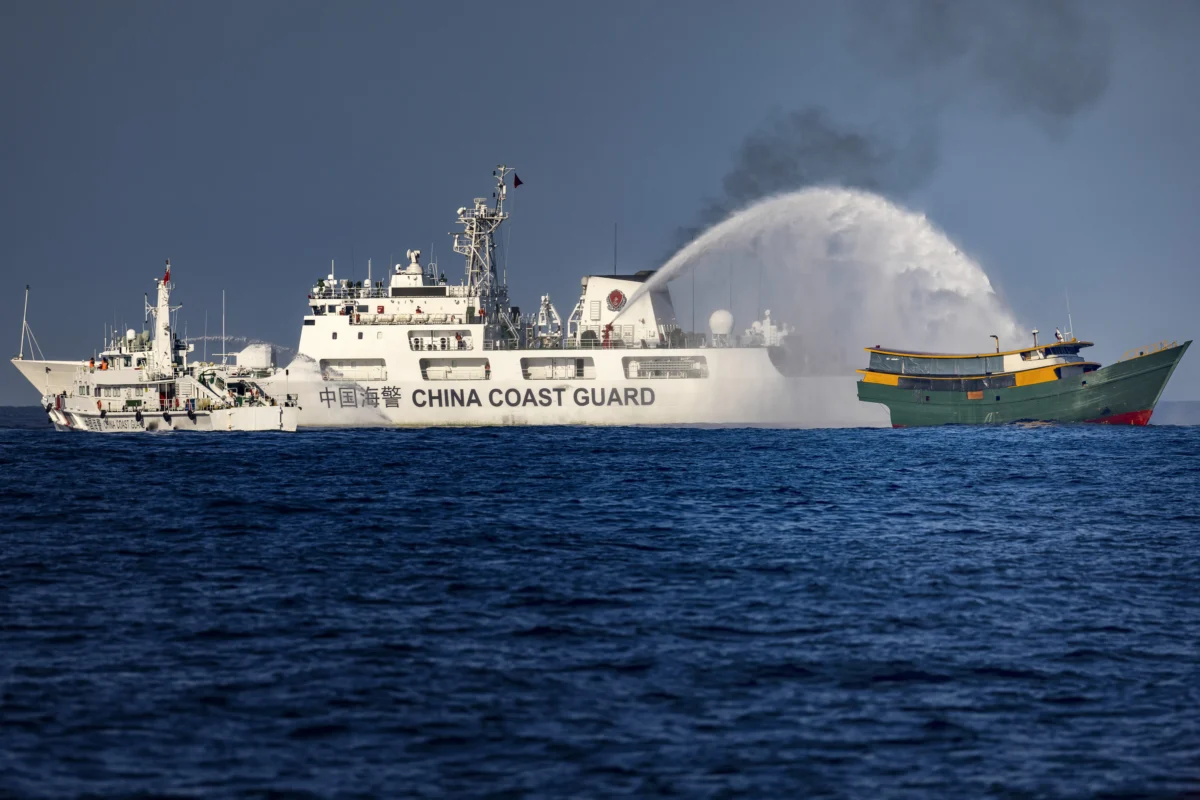NEW YORK—The United States is looking to strengthen alliances with China’s neighbors in response to an increasingly aggressive and repressive regime, according to Nicholas Burns, the U.S. ambassador to China.
At a moderated discussion at Manhattan’s Asia Society, the U.S. diplomat flashed back to the Clinton era, when the United States advocated for bringing China into the World Trade Organization with the assumption that integrating the communist regime into the international system would assimilate it with Western values.
“I think we’re way past that,” Mr. Burns told the audience.
If that was the political reality then, the behavior of the Chinese regime in 2024 presents a “completely different” dynamic, he said. The regime is “aggressive, dismissive of some of its neighbors,” while it has only escalated its suppression of people inside China.
“So I don’t think we’re in a period of time when we believe we can suddenly change the behavior of the [Chinese regime],” he said. “But we can change the environment.”
That entails strengthening U.S. alliances in the Indo-Pacific and working with the European Union “in a strategic policy together in the Indo Pacific,” while at the same time investing at home to build up the U.S. industrial base, and defending U.S. national interests, he said, pointing to human rights, technology, and trade.
“That’s our policy, and that’s the right policy, and it’s really to form a different environment around China.”
Mr. Burns ticked off a list of Chinese transgressions, from its military coercion toward the U.S.’s Indo-Pacific partners to the “pernicious” Chinese military aid to Russia.
The argument that tensions with the United States had somehow triggered the Chinese Communist Party (CCP) to become more aggressive doesn’t hold water, Mr. Burns said.
“I think it’s the reverse,” he said, noting that the United States has for decades been consistent in adhering to the CCP’s “One China Policy,” under which Washington officially recognizes only one Chinese government but maintains unofficial ties with Taiwan, an island that China has claimed as a renegade province of its own.
The Chinese regime, meanwhile, has engaged in territorial disputes in the South China Sea with countries such as the Philippines and Malaysia, as well as clashes along its Himalayan border with India.

“It’s not because we changed,” Mr. Burns said. “It’s that the Chinese leadership has a different view, and they’re contesting other people’s borders and presenting a security challenge, which is quite profound.”
Beijing has repeatedly touted rhetoric of a “win-win relationship” with Washington, while at the same time expanding its military presence with no regard for other countries’ sovereignty, he said. “That’s a problem, and so we are in a competitive frame of mind.”
One element of that manifests on the ideological front.
When asked about the CCP’s efforts to control narratives abroad, Mr. Burns noted China’s state-funded language teaching program, the Confucius Institutes, that were once prevalent across the university system in the United States. Virtually all of these institutes have now been shut down amid rising concerns of espionage.
“These are agents of Chinese government influence,” Mr. Burns said.
He sees it as one part of an ongoing “battle of ideas” in which the Chinese regime seeks to undermine the U.S.-led international order built after World War II.
While Chinese state propaganda network CGTN covers “most hotel rooms around the world on any continent,” with billions of dollars of state funding to project Beijing’s influence, remarks from Secretary of State Antony Blinken on China couldn’t get past CCP censors to reach the Chinese people, he noted.
The Great Firewall, he said, means that “most Chinese citizens don’t know about Tiananmen. They don’t know what’s happening in Xinjiang … they don’t know what’s happening in Hong Kong.”
The contrast between these two worlds is why Mr. Burns believes the United States has “an obligation to contest the battle of ideas,” he said, adding that it’s a “peaceful battle.”
Earlier during his speech, two women twice interrupted him, with one loudly saying, “We don’t have the right to tell China what to do.”
Mr. Burns said later that the heckling didn’t bother him.
“We don’t want to have them interrupt and prevent a discussion, but they have a right to speak out and criticize me,” he said. “That’s not what’s happening, obviously, in China. So we try to show that side of American democracy.”
From The Epoch Times
